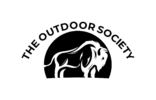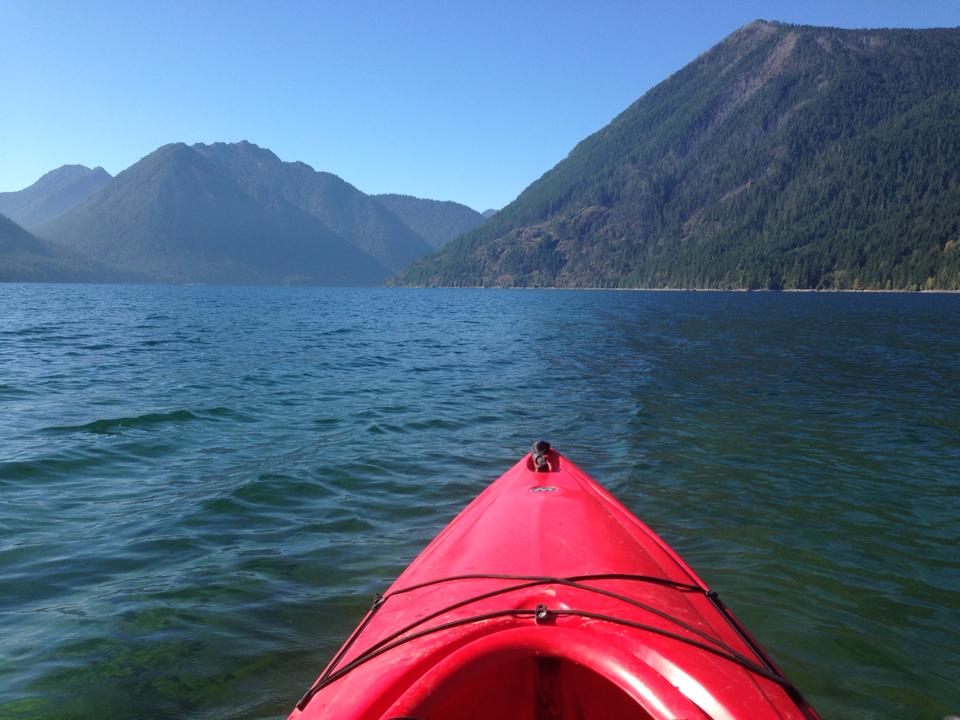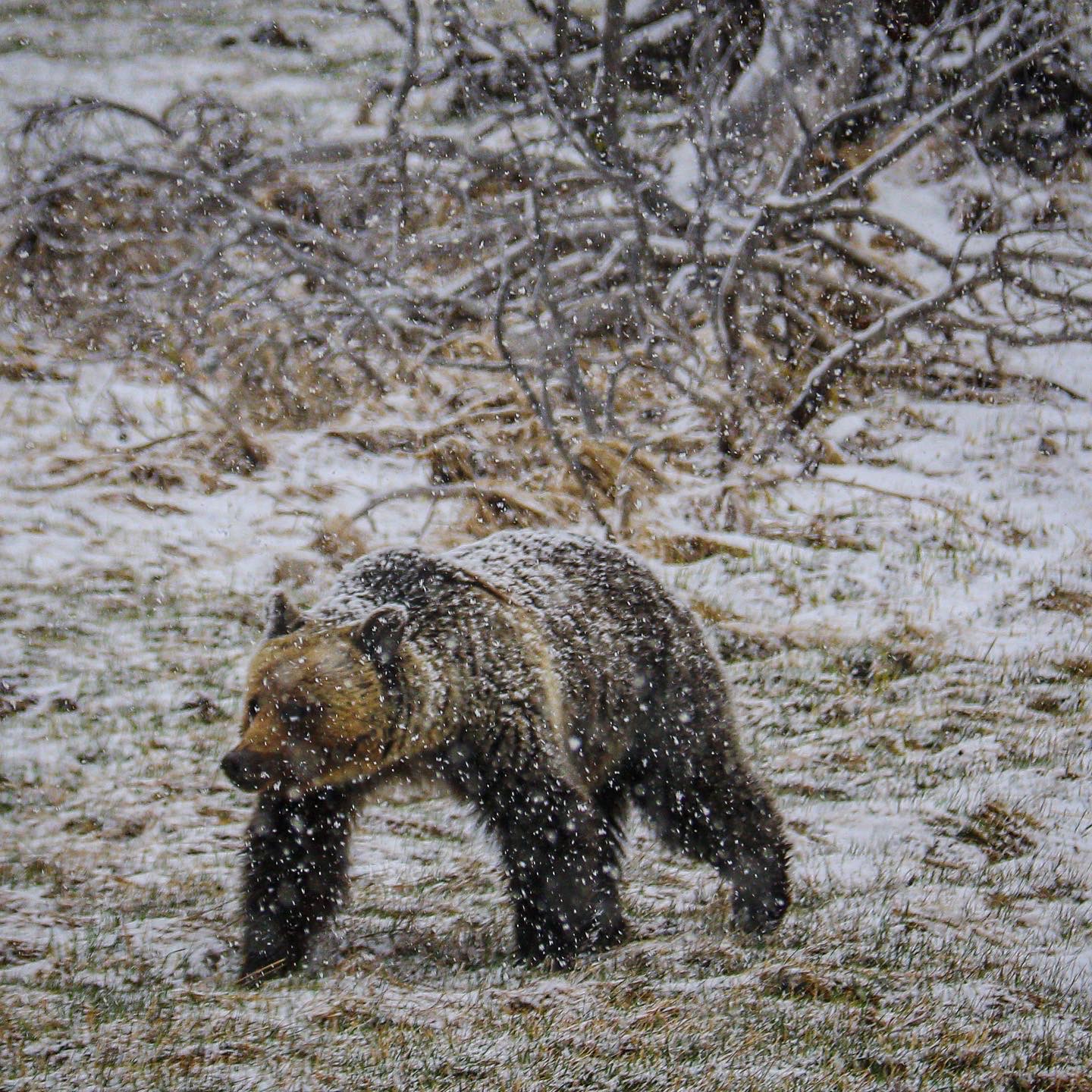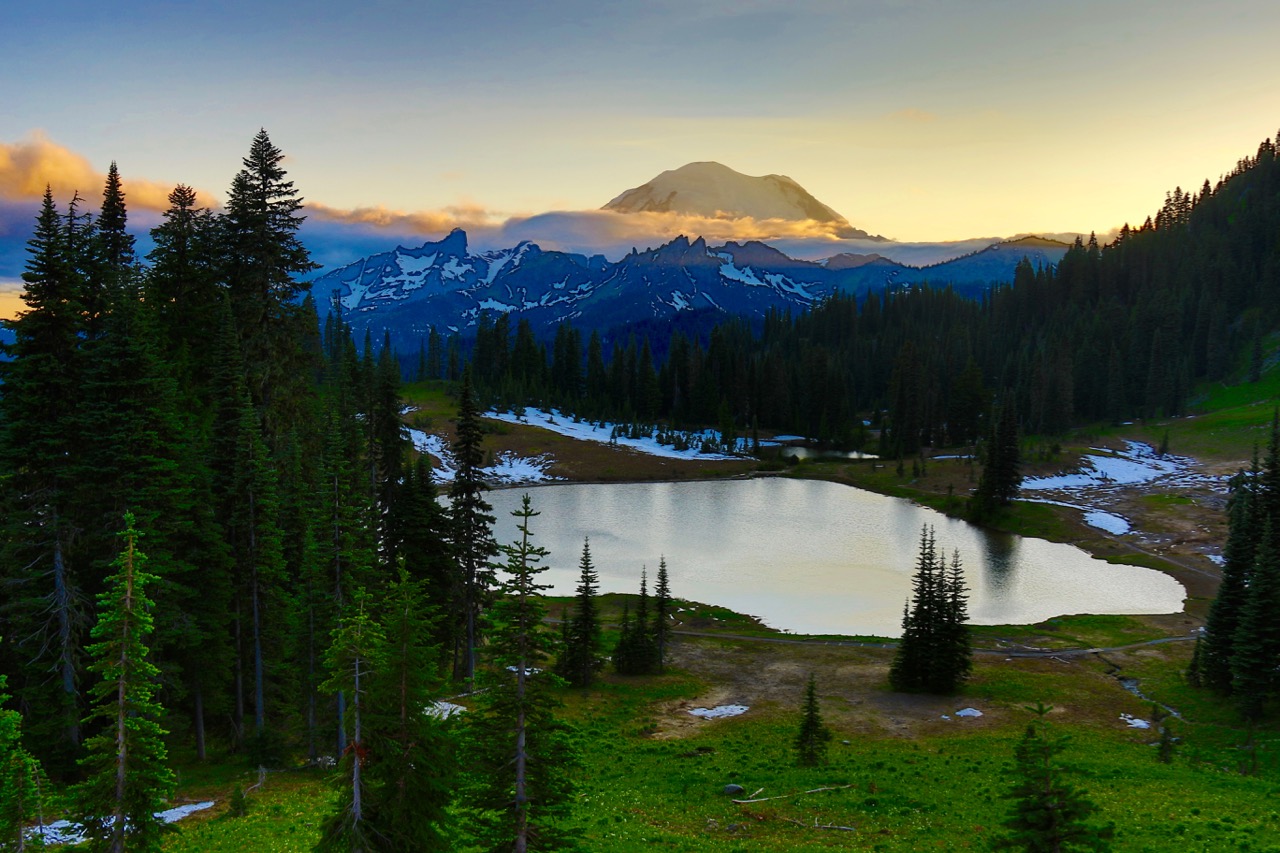Living near Olympic National Park, I am lucky enough to be able to meet and converse with some of the most outdoorsy people in the world. Tucked away in out little corner of America, those who flock to the wilderness around Olympic National Park are a special breed, full of adventure, excitement and a love of the natural world. From hikers and mountain climbers to long boarders, mountain bikers, trail runners and kayakers, outdoor enthusiasts of every walk of life tend to fall in love with the mountains, rivers, lakes, beaches, rainforests and views of the Olympic Peninsula.
Recently, I had an opportunity to chat with Sarah Muszynski, one of the many who have fallen in love with the rugged wilderness of the Pacific Northwest. Sarah works as a ranger at Olympic National Park, as well as running a kayaking tour service out of Lake Cushman near Olympic National Park’s Staircase Region. I asked her 13 random questions about her life, the region, kayaking and more, and her answers were incredible, as are the family-friendly, dog-friendly kayaking tours Blue Horizons offers.
How long have you been in the Pacific Northwest? What brought you here?
I moved here from Michigan’s Upper Peninsula a few years ago, after about a decade of daydreaming about living here. It felt like home right away, and I feel really lucky to be here. I still preach the gospel of northern Michigan to anyone who will listen, though- it’s an indescribably special place and it was a little gut-wrenching to leave it.
When thinking about nature, what is your best memory from the region?
Oddly enough, it happened in the middle of Seattle. A couple Decembers ago, I read online that a pod of orcas was heading toward the city (thanks, Orca Network!), so I took my kayak to Alki Beach in hopes of getting a glimpse. I had never seen a whale and I remember shaking with excitement at the idea of seeing them from my boat for the first time. I sat in my warm car watching the updates roll in, and when they were near, I hopped in my boat and paddled out. I spent 10 minutes or so eagerly scanning the horizon before finally seeing a spout! Then another, and another. They were far enough away that I could barely see them, but I was thrilled. I watched them for a few minutes, then as they swam off into the sunset, I turned around to head back to the beach. The moment I turned my boat around, I saw a BIG black fin about 10 feet away. One had snuck up on me while I was staring out at the horizon! It was quite scary for a few seconds, then I realized that he was aware of me and was politely going around me. I watched him surface a few times near me, then he swam off. I will never forget that feeling. It was so surreal to have that experience right in the city.
You run Blue Horizons. What would you like everyone to know about your business?
It’s a real labor of love for me. Kayaking has brought so much positivity into my life; opening that door for others is what drives Blue Horizons. I want to provide a doorway into the sport for folks who aren’t interested in whitewater or exposed coastal paddling, yet want a high quality experience. There are so many opportunities to do more “extreme” kayaking in the Pacific Northwest, and hopeful beginners seem to get intimidated by that. I understand and have felt that myself and have structured the business to be as welcoming and worry-free as possible. The gear, boats and location were all chosen very deliberately to give people more than they expect. The kayaks are very comfortable and stable, yet responsive and fun. The launch area is protected and beautiful. I’m experienced in guiding beginners, and I’m passionate about what I’m doing. This is really the ideal setup for folks to get their feet wet, so to speak. We also have plenty of kids’ gear and we are pet friendly, so you don’t have to leave anyone on shore. Info: www.bluehorizonspaddlesports.com
In your opinion, where is the best place to paddle? What about for beginners? Advanced?
We are really spoiled in Washington. We have the Puget Sound, San Juan Islands, Vancouver Island just to the north, and many miles of beautiful, rugged open coastline. What I’m interested in, however, are our inland lakes and waterways. We have this abundance of stunning inland lakes that would be the main attraction anywhere else in the country. They provide beautiful scenery and relatively protected water. You don’t have to worry about tides, and you generally don’t have to worry about strong currents or breaking waves. I think simplicity is best for beginners, and taking those risk factors out of the equation will facilitate a lot more people getting into the sport. Aside from Lake Cushman, Ross Lake and Lake Wenatchee are personal favorites.
I’m definitely a calm-water paddler who sticks to inland lakes and protected bays, so I’m no authority on advanced paddling spots! 3 seasons guiding beginners on Lake Superior gave me enough adrenaline and weather worries for about a decade. However, Cape Flattery and outer Vancouver Island look like they would be life-changing places to paddle, with the right company.
Is sunrise or sunset better on Lake Cushman?
Sunset! There is something special about watching the crowds leave and the dust settle when the sun starts sinking. All of a sudden, you have the place to yourself. The fish start jumping, the birds start diving, the peaks start glowing. You get the sunset show, and if it’s a clear night you can do some incredible stargazing afterward. My best memories on the lake happen at sunset and beyond. I’ll never forget paddling under meteor showers and full moons.
Lake Cushman, Lake Ozette, Lake Crescent or Lake Quinault…which is your favorite?
I have had great days on all 4, and they each have their own character and beauty. Paddling the western shore of Lake Cushman is still my favorite. The scenery is unbeatable, the shoreline is gradual so you can easily get out to stretch your legs and explore, the water is crystal clear, and you feel like you are far away from it all.
What deals/tours will you be offering this year?
It’s early, so I’m still narrowing down the options, but we’ll definitely be offering more group activities and focusing more on building a paddling community in the area. Ideas on the radar include a weekly women’s paddle, as well as a weekly family session to get the kids (and pets!) on the water together. I’m also looking at adding stand up paddleboards to the lineup. The best way to keep up to date with our offerings is to follow us on Facebook.
What is your best moment on the water in the PNW or while giving a tour?
Any moment I see people getting bitten by the kayaking bug for the first time becomes a favorite moment to me. Not long after I opened for business, I gave a one-on-one lesson to a retired firefighter from southern California who had just relocated to trade in traffic and busy-ness for quiet and adventure. He was this very quiet, stoic guy until the moment we started paddling. Suddenly he was smiling from ear to ear and gushing about the beauty and how wonderful it was to be so close to the water. It was clear he had been waiting a long time for that experience. He was so thankful, and he ended up becoming my first “regular.” That is what it’s all about.
What is the funniest/strangest/most unique question you have been asked while working in Olympic National Park?
Every once in a while, I come across someone who thinks we are in control of the animals or that we cage them up at night, which always blows my mind a little.
Where would you most want to camp in Olympic National Park?
Anywhere on the coast. My favorite place to spend an afternoon is Hole in the Wall north of Rialto Beach. I never feel ready to leave and always wish I’d planned to stay the night to allow for more exploring.
In your honest opinion, how does the wilderness of the Olympic Peninsula measure up to other places you have traveled?
What makes Olympic so special is the incredible variety it offers. When I wake up, I can choose between paddling fresh or salt water, hiking an alpine trail, strolling through a moss-draped rainforest or tidepooling/whale watching on a stretch of wild coastline. I can’t think of many other places that can offer that array of options in such a concentrated area, and all at such a high quality.
What would you say to people who say Olympic is too far away from Seattle and not worth the drive?
You can hop on the ferry in downtown Seattle and be at the southeast entrance to the park in just over 2 hours (an hour on the ferry, a little over an hour on the road). 2 hours of travel to get to a UNESCO world heritage site seems like a pretty good deal to me!
What role do you see the increase in tourism playing in the lives of residents of the Olympic Peninsula? As a small business owner trying to build a sustainable life on the peninsula, the growth is exciting and encouraging. It was a big factor in my decision to operate here. I do understand and sympathize with the local residents who aren’t happy to see crowds of people where they were once able to find quiet and solitude. However, there are many hardworking folks on the peninsula whose future depends on those tourist dollars coming in. We may be giving up some peace and quiet during the peak months (or just have to work a little harder to get it), but it will help our neighbors thrive and in the end, it will make the peninsula a more viable and attractive place to live than it already is.
In 7 words or less, how would you describe Olympic National Park?
Just get here and thank me later.
Discover a Hike a Week through Doug Scott’s Olympic National Park Area Guidebook

















